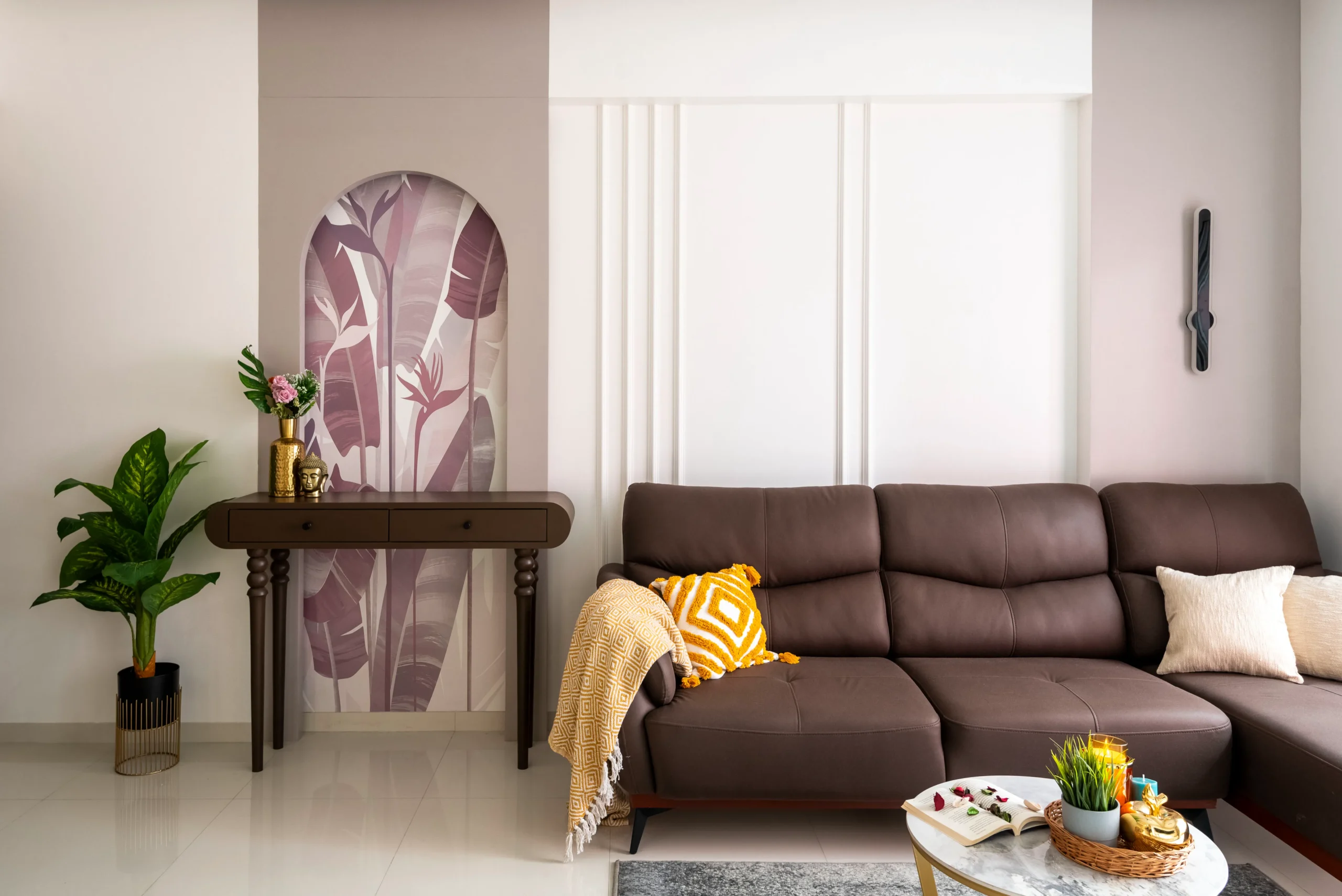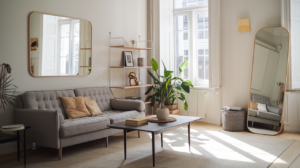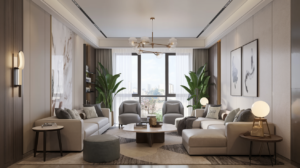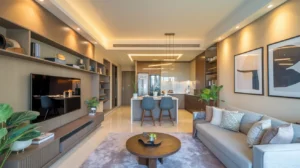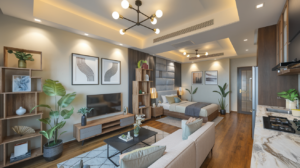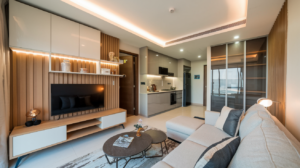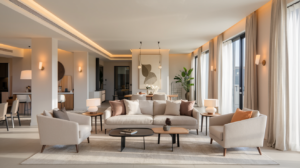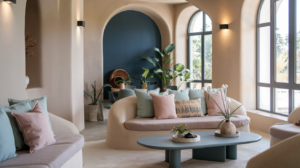Looking to hire a professional for your interior design needs? This article will help you understand the crucial differences between interior designers and interior decorators, including their unique responsibilities, skills, and expertise. By the end, you’ll be equipped with the knowledge to make an informed decision for your home design project.
When it comes to enhancing the aesthetics and functionality of your living space, the roles of interior designers and interior decorators play a crucial part. While both professionals are involved in the beautification of interior spaces, it’s essential to understand the key differences between the two for your home design projects.
Importance of Understanding the Differences for Home Design Projects
Understanding the distinction between interior designers and interior decorators is vital when planning your home design project. By knowing the unique responsibilities, skills, and expertise of each professional, you can make an informed decision when hiring the right individual for your specific needs. This knowledge will ensure that your project is executed with precision and meets your expectations.
Responsibilities of an Interior Designer
Space Planning and Layout
Interior designers are responsible for creating efficient and functional interior spaces. They carefully plan the layout to optimize the use of space while considering traffic flow and ergonomic factors.
Design Concept Development
Interior designers develop design concepts that align with the client’s preferences and functional requirements. They create cohesive design schemes that integrate various elements such as furniture, lighting, and architectural features.
Selection of Architectural Details and Finishes
From flooring materials to ceiling designs, interior designers are involved in selecting architectural details and finishes that contribute to the overall aesthetic and functionality of the space.
Collaboration with Architects and Contractors
Interior designers work closely with architects and contractors to ensure that the design vision is seamlessly integrated into the construction or renovation process.
Knowledge of Building Codes and Regulations
Interior designers have a deep understanding of building codes and regulations to ensure that the design complies with legal requirements and safety standards.
Skills and Expertise of an Interior Designer
Proficiency in CAD Software
Interior designers use Computer-Aided Design (CAD) software to create detailed floor plans, 3D models, and design presentations.
Strong Understanding of Color Theory and Spatial Arrangements
They possess a strong grasp of color theory and spatial arrangements to create harmonious and visually appealing interiors.
Knowledge of Sustainable Design Practices
Interior designers are well-versed in sustainable design practices and environmentally friendly materials to promote eco-friendly design solutions.
Ability to Create Functional and Aesthetically Pleasing Spaces
They have the expertise to balance functionality and aesthetics, ensuring that the designed spaces meet the practical needs of the occupants while being visually appealing.
Strong Communication and Project Management Skills
Interior designers excel in communication and project management, effectively coordinating with clients, contractors, and other professionals involved in the project.
Responsibilities of an Interior Decorator
Selection of Furniture, Fabrics, and Accessories
Interior decorators focus on curating furniture, fabrics, and accessories that complement the design scheme and reflect the client’s style preferences.
Coordination of Color Schemes and Decorative Elements
They are responsible for coordinating color schemes and decorative elements to create a cohesive and visually appealing interior.
Enhancement of Existing Spaces Through Styling and Accessorizing
Interior decorators enhance existing spaces by adding decorative elements, styling accessories, and optimizing the visual appeal of the interior.
Budget Management for Decor Items
They manage the budget for decor items, ensuring that the design vision is achieved within the specified financial constraints.
Skills and Expertise of an Interior Decorator
Extensive Knowledge of Furniture Styles and Trends
Interior decorators possess extensive knowledge of furniture styles, trends, and historical design periods to curate the perfect pieces for the space.
Proficiency in Textile Selection and Coordination
They have a keen eye for selecting and coordinating textiles, including upholstery, drapery, and decorative fabrics, to enhance the overall design.
Ability to Create Cohesive and Visually Appealing Interiors
Interior decorators excel in creating cohesive and visually appealing interiors by harmonizing various design elements.
Strong Eye for Detail and Design Aesthetics
They have a strong attention to detail and a keen sense of design aesthetics, ensuring that every element contributes to the overall visual impact.
Excellent Budgeting and Resource Management Skills
Interior decorators are skilled in budget management and resource allocation, ensuring that the design vision is achieved within the specified financial parameters.
Key Differences in Responsibilities
Emphasis on Structural and Architectural Elements for Interior Designers
Interior designers focus on the structural and architectural elements of a space, ensuring that the layout and design concept align with functional and ergonomic requirements.
Focus on Aesthetics and Decor Selection for Interior Decorators
Interior decorators place a strong emphasis on aesthetics and decor selection, curating furniture, fabrics, and accessories to enhance the visual appeal of the interior.
Collaboration with Architects and Contractors for Interior Designers
Interior designers collaborate closely with architects and contractors to integrate the design vision into the construction or renovation process.
Direct Involvement in Furniture and Decor Selection for Interior Decorators
Interior decorators are directly involved in the selection and curation of furniture and decor items to bring the design concept to life.
Key Differences in Skills and Expertise
Proficiency in CAD Software and Space Planning for Interior Designers
Interior designers are proficient in CAD software and possess strong space planning skills to create functional and efficient interior layouts.
Extensive Knowledge of Furniture Styles and Textile Selection for Interior Decorators
Interior decorators have extensive knowledge of furniture styles and trends, as well as expertise in textile selection and coordination to enhance the interior design.
Understanding of Building Codes and Regulations for Interior Designers
Interior designers have a deep understanding of building codes and regulations to ensure that the design complies with legal requirements and safety standards.
Budget Management and Resource Allocation for Interior Decorators
Interior decorators excel in budget management and resource allocation, ensuring that the design vision is achieved within specified financial constraints.
Conclusion
Understanding the distinct roles, responsibilities, skills, and expertise of interior designers and interior decorators is crucial when embarking on a home design project. By recognizing the differences between these professionals, homeowners can make informed decisions when hiring the right individual to bring their design vision to life. Whether it’s the applied human sciences of an interior designer or the creative technical solutions of an interior decorator, each professional plays a unique and essential role in creating stunning interior spaces that align with the client’s needs and preferences.
Also If you are looking for interior designer in pune contact us now we are the one of the best interior designer in pune,
